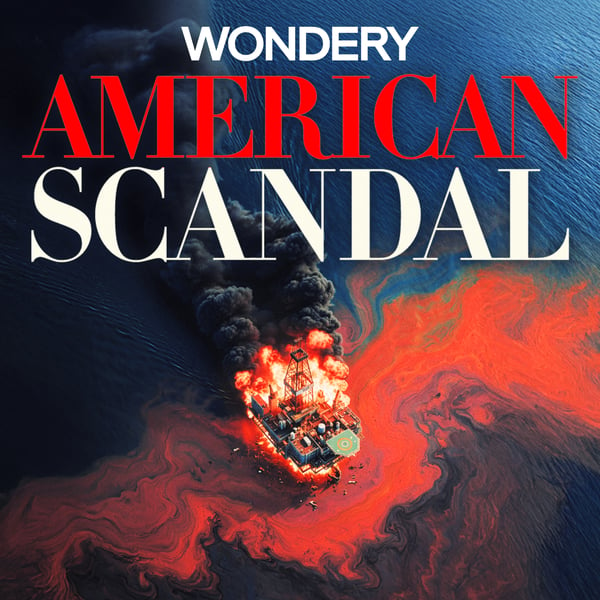The Dust Bowl | The Battle in Muscatine | 4
American Scandal
Wondery
4.6 • 18.7K Ratings
🗓️ 14 November 2023
⏱️ 48 minutes
🧾️ Download transcript
Summary
Air pollution had long been a problem in Muscatine, Iowa.
For decades, a corn-processing plant had been operating in the south end of town. And according to locals, the facility’s emissions were so strong, some people gagged just by breathing in the air.
But a group of residents wouldn’t accept the status quo. And with the help of public-interest attorneys, they launched a legal battle that would redefine Muscatine.
In this interview, Scott Entin, one of the residents’ attorneys, tells the story of this long and difficult fight. And he explains how the group’s legal strategy could help address other environmental crises, including climate change.
Support us by supporting our sponsors.
Planet Money: Listen now to Planet Money by NPR wherever you get your podcasts.
Meridian Grooming: Get 20% off The Trimmer by visiting meridiangrooming.com and typing in the code SCANDAL at checkout.
Audible: New users can try Audible free for 30 days. Visit Audible.com/AS or text AS to 500500.
See Privacy Policy at https://art19.com/privacy and California Privacy Notice at https://art19.com/privacy#do-not-sell-my-info.
Transcript
Click on a timestamp to play from that location
| 0:00.0 | From Wundery, I'm Lindsay Graham, and this is American scandal. In the 1930s, dust storms raged across the southern Great Plains, a region spanning from |
| 0:40.1 | Texas to Kansas to Colorado. These storms towered into the sky and blew across state lines, carrying black clouds of |
| 0:47.9 | dirt that made the air unbreatheable and turned the former grasslands into a barren desert. |
| 0:54.0 | Thousands of Americans lost their lives to the Dust Bowl, |
| 0:57.5 | and hundreds of thousands were forced to flee their homes. |
| 1:01.0 | When experts studied the crisis, they traced the cause back to decades of unsustainable farming in a region they said was never meant for agriculture. |
| 1:09.0 | The Dust Bowl, therefore, was a man-made disaster, and experts ultimately pinned much of the blame on government |
| 1:16.7 | policy which encouraged Americans to move out to the southern plains and plow up the land |
| 1:21.7 | setting the entire crisis in motion. |
| 1:24.7 | In the mid-1930s President Franklin Delano Roosevelt and his administration launched into |
| 1:29.4 | an ambitious program to combat the Dust Bowl. |
| 1:32.2 | They encouraged farmers to adopt conservation techniques |
| 1:35.3 | and converted large portions of the southern plains to grasslands, and eight decades later, |
| 1:40.7 | the worst of the dust storms are now a relic of American history. |
| 1:44.8 | But today the country is grappling with a new set of environmental crises, and with elected officials |
| 1:49.7 | divided over the proper response, government action appears to be stalled. |
| 1:54.8 | But according to today's guest, Attorney Scott Anton, even without action by state or federal |
| 1:59.6 | legislators, Americans can still have a large impact on the environment using the power of the courts. |
| 2:05.0 | Anton is a partner at the public interest law firm, Minor Barnhill and Galland. |
| 2:10.0 | And over the course of his career, he and his firm have taken on everyone from industrial |
| 2:13.8 | polluters to companies that defraud the public. |
| 2:17.2 | In our conversation today, we'll look at his law firm's fight against a corn processing plant |
... |
Please login to see the full transcript.
Disclaimer: The podcast and artwork embedded on this page are from Wondery, and are the property of its owner and not affiliated with or endorsed by Tapesearch.
Generated transcripts are the property of Wondery and are distributed freely under the Fair Use doctrine. Transcripts generated by Tapesearch are not guaranteed to be accurate.
Copyright © Tapesearch 2025.

